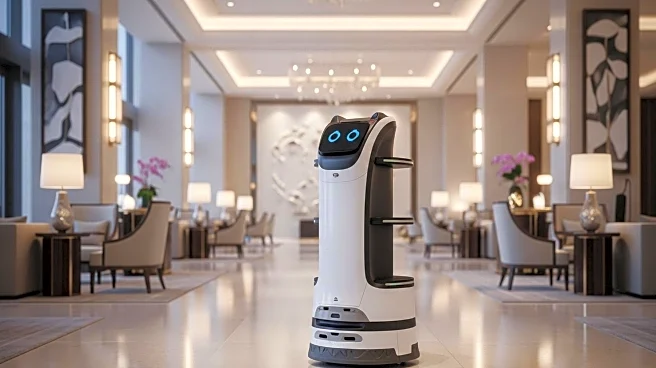What is the story about?
What's Happening?
Simone Puorto, Head of Emerging Trends & Strategic Innovation at Hospitality Net, is set to speak at BTO 2025 in Florence. His presentation, titled 'Zero-Click, Zero-Friction: Rethinking Hospitality from Discovery to Operations,' will address the transformative impact of digital technology on the hospitality industry. Puorto highlights the shift from traditional search engine optimization to generative artificial intelligence systems, which are changing how hotels gain visibility. He argues that AI will render current SEO practices obsolete, as AI agents become more integrated into hotel operations, reducing friction and enhancing efficiency. Puorto, an early adopter of AI in the Italian hospitality sector, emphasizes the need for hotels to adapt to these changes by embracing modular ecosystems and flexible architectures.
Why It's Important?
The integration of AI into the hospitality industry signifies a major shift in how hotels operate and interact with guests. This transformation could lead to increased efficiency and reduced operational costs, benefiting both hotel operators and guests. As AI systems become more prevalent, the competitive advantage will shift from proprietary technology to the ability to quickly adapt and integrate new solutions. This change could democratize access to advanced technology, allowing smaller hotels to compete with larger chains. However, it also poses challenges, as hotels must navigate the complexities of integrating AI into existing systems and processes.
What's Next?
As AI continues to evolve, hotels will need to focus on creating seamless, integrated experiences for guests. This may involve rethinking traditional roles and processes within the industry, as automation takes over routine tasks. The future of hospitality could see a blend of human interaction and AI-driven efficiency, with hotels offering personalized experiences while maintaining operational excellence. Stakeholders in the industry, including hotel operators and technology providers, will need to collaborate to develop solutions that enhance guest satisfaction and streamline operations.
Beyond the Headlines
The rise of AI in hospitality raises ethical and cultural questions about the role of technology in human interactions. As automation becomes more prevalent, the value of human touch and personal service may become a luxury. This shift challenges traditional notions of hospitality and requires a reevaluation of what it means to provide exceptional service. Additionally, the widespread adoption of AI could lead to job displacement, necessitating retraining and adaptation for workers in the industry.














